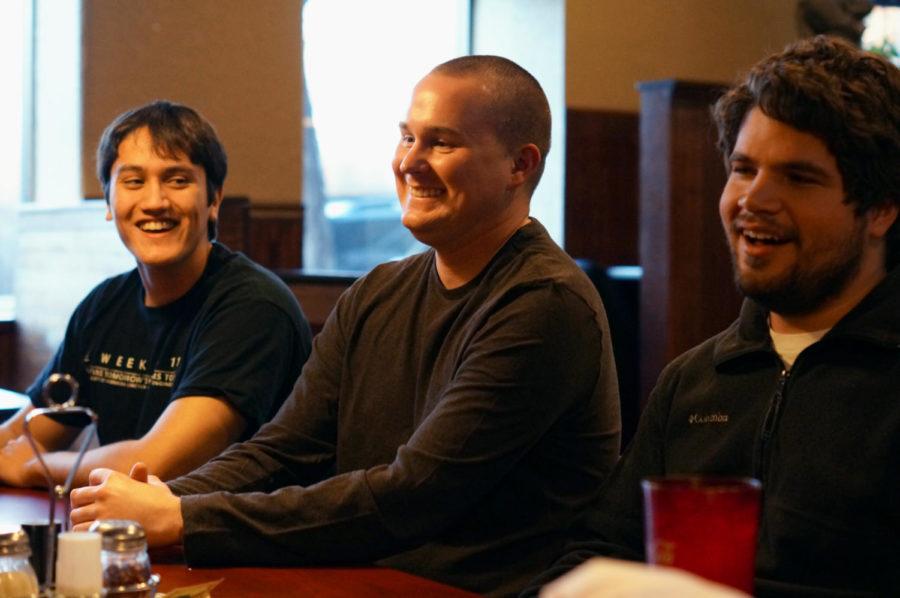Misconceptions of philosophy education
February 19, 2013
Philosophy, an area of study once popularized by the likes of Aristotle and Socrates, is now an afterthought for many in search of postsecondary options.
A stigma is regularly impressed on philosophy majors, one that commonly stems from financial and professional uncertainty connotated with that particular degree.
“A lot of students express worries about the marketability of a philosophy degree,” said Kevin de Laplante, associate professor of philosophy and chair of Iowa State’s philosophy department.
De Laplante said he believes these worries are often misguided.
“Your income expectations may be higher than you think,” de Laplante said.
In 2008, a study from Payscale.com stated that while starting median salaries for philosophy majors are nothing extraordinary, mid-career median salaries for these same majors commonly place ahead of those with more sought-after degrees.
“Chemistry is below philosophy, marketing is below philosophy, political science is below philosophy,” de Laplante said, naming just a few degrees that rank lower than philosophy in this aspect.
Although a degree in philosophy has deceptive financial benefits of its own, other options exist for those pursuing any type of education in this area of study.
Jeff St. Clair, president of the ISU Philosophy and Religious Studies Club, said he believes taking introductory-level classes is a good option for meeting both general education requirements as well as further exploring what philosophy can offer.
He attributes this sentiment, in part, due to a solid faculty.
“As far as faculty goes, I would say they have the best faculty. Every professor I’ve had has been great,” St. Clair said.
St. Clair also spoke about the flexibility and understanding of the department’s professors.
“I get the impression that people in the department, especially at the 200-level courses, realize that a lot of the students there aren’t going to be philosophy majors,” St. Clair said.
St. Clair’s personal experiences also served to further cement this impression.
“In my Philosophy of Technology course, the professor taught it as if the people there didn’t have deep philosophical backgrounds, and that works really well. They’re much more accessible than people give them credit for,” St. Clair said.
Many students find enjoyment from philosophy courses, yet do not pursue them any further, de Laplante said.
“I get a lot of students who tell me that they love the one or two philosophy classes they took as an undergraduate, and that they would’ve taken more courses if their schedules allowed it,” de Laplante said.
Although many students express post-satisfaction from their courses, most do not pursue any further courses in philosophy.
“Since they weren’t majoring in philosophy, it really wasn’t possible. This is unfortunate when you find a student who loves philosophy,” de Laplante said.
In studying philosophy, one learns “how to think logically, critically and independently,” de Laplante said.
These skillsets can be utilized on a regular basis and hold intrinsic value whether philosophy is in play in one’s professional career or not.
Furthermore, students gain a better understanding of “how to communicate ideas and arguments clearly and effectively,” de Laplante said.
To reinforce skills learned in philosophy courses, or just learn more about philosophy and religious studies, the Philosophy and Religious Studies Club serves as a conduit to do so.
“We’ve had speakers on the Matrix Hypothesis, on intro to philosophy and on bizarre metaphysical concepts,” St. Clair said.
There is a variety of topics that can be expected at meetings.
“We basically figure anytime four or five people can come up with a topic they want to hear about, someone is willing to give a talk on it,” St. Clair said.
St. Clair welcomes everyone to participate in the club. Weekly meetings occur at 5 p.m. every Friday at Jeff’s Pizza.

















